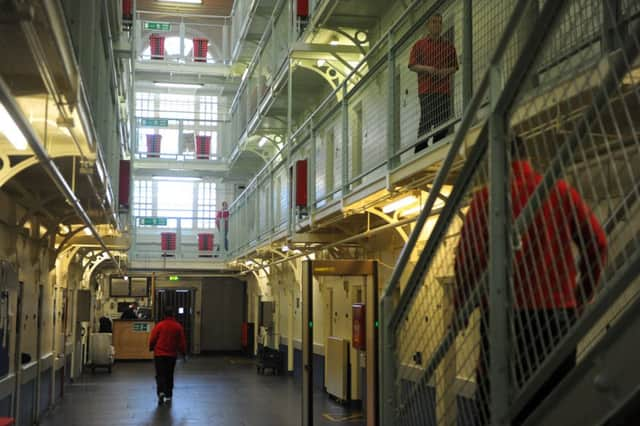Scottish prisoner numbers decline as reforms gathers pace


The average daily prison population in 2015/16 was 7,675 – down from 7,731 in 2014/15 and 8,179 in 2011-12, according to official figures.
Justice secretary Michael Matheson is committed to reducing the use of short-term imprisonment, which research suggests does little to discourage reoffending, in favour of expanded community payback programmes and increased use of electronic tagging.
Advertisement
Hide AdAdvertisement
Hide AdThe MSP announced earlier this month pilot projects including GPS tracking, alcohol monitoring technology and tagging as an alternative to custody.


The changes follow recommendations from a panel of experts set up by the Scottish Government two years ago and will require new legislation.
Mr Matheson has previously said that “effective community sentences have driven Scotland’s reoffending rate down to a 17-year low using smarter, more effective interventions.”
There are 15 prisons north of the border, 13 of which are publicly owned and operated by the Scottish Prison Service (SPS). The remaining two, HMP Kilmarnock and HMP Addiewell, are privately owned and operated under contract to SPS.
Cornton Vale, the sole women’s prison in Scotland, will be closed in stages from this year. It will be replaced by an 80-bed jail and five regional units holding 20 women each.


A study published in March by the Council of Europe found there are around 148 people in jail per 100,000 population in Scotland, compared with the European average of 136.
The report, based on figures up to 2014, found there were 95,248 people behind bars in the UK, including 7,879 in Scotland.
Although that number has fallen slightly, the daily prison population is volatile and subject to substantial fluctuations of the order of +/- 300 due to a range of reasons.
Advertisement
Hide AdAdvertisement
Hide AdScotland’s imprisonment rate is far in excess of similar-sized nations such as Norway, Denmark and Finland. Prison populations in the Nordic countries are around 50-30 per cent smaller, according to figures by the Howard League for Penal Reform.
A spokeswoman added “there have been some successes in recent years”, most notably the decline in the youth custody rate. However, the female prison population has increased by 120 per cent since 2000, and the numbers of those in prison on remand have increased by 50 per cent over the same period.
Analysis by the University of Glasgow in 2015 found the number of those imprisoned per 100,000 of the Scottish adult population is the highest in Dundee (377), followed by Glasgow (332) and West Dunbartonshire (275).
A Scottish Government spokesman said: “Sentencing is a matter for the courts and decisions are based on recommendations based on public protection, risk assessment and the background of the individual.
“We are committed to reducing the use of short-term imprisonment, which has been shown to be ineffective in reducing reoffending, in favour of greater use of robust community sentences.
“We’re taking forward a range of measures to support this. This includes proposals to expand the use of electronic monitoring and ongoing investment in community sentences, supported by an additional £4 million in the Scottish Budget for 2016/17.”